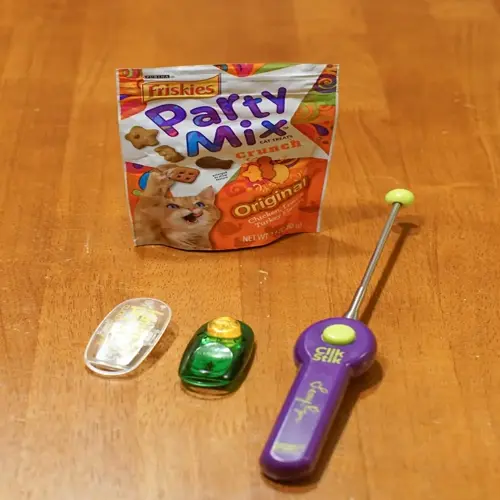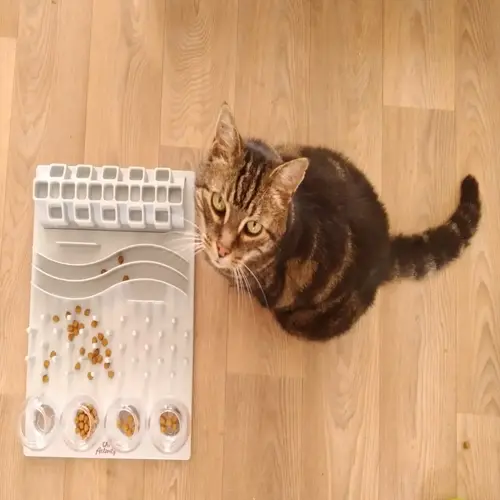Is free-feeding acceptable for cats?

Written by
John Williams
Reviewed by
Prof. Henry Webster, Ph.D.The free-feeding of cats, where food is available for an extended period, poses a serious threat to their health. The cats do not have the instinct for portion control, resulting in overeating. I have treated numerous cases of obesity in cats from owners who believe that free-feeding is a great convenience. Scheduled meals can help prevent weight gain and establish regular living habits.
Portion Control
- Measure food with digital kitchen scales
- Divide daily allowance into 2-3 meals
- Adjust amounts based on monthly weigh-ins
Behavioral Training
- Feed at consistent times daily
- Ignore begging between meals
- Use feeding signals like specific bowls
Health Monitoring
- Track body condition monthly
- Watch for food guarding behaviors
- Note changes in eating speed
Transitioning from free-feeding takes time and patience. Begin by measuring your dog's total daily food allotment and distributing it in limited portions. Gradually reduce the length of time the dog has access to the food over a period of two weeks. I would suggest starting with 8 hours and then transitioning to 30-minute feeding intervals. Repetition is reassuring to dogs, which can help alleviate their anxiety during the transition.
Puzzle feeders offer a middle ground for cats, providing a balance between free feeding and meal feeding. These devices release small amounts of food at a time while cats are engaged in playing, thus mimicking hunting behaviors. This activity slows down the eating rate and provides enrichment. My cats use puzzle balls that dispense kibble when batted around the room.
Adjustments should be made for special circumstances. Kittens under six months of age require frequent feedings for optimal growth. Cats with medical problems, such as diabetes, require strict feeding schedules. In older cats, then, please consult your veterinarian before changing their feeding schedules. Never institute fasting without consulting a trained professional.
Feeding properly helps avoid expensive health problems. If you feed your cat at scheduled meals, you'll likely spend less on vet bills related to obesity. You'll also waste less food and have a happier cat with better digestion! Your continued effort and routine of structured feeding will go a long way to improving your cat's quality of life and length of life.
Read the full article: Complete Cat Feeding Guidelines for Every Owner

